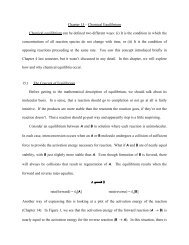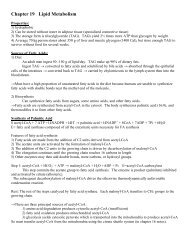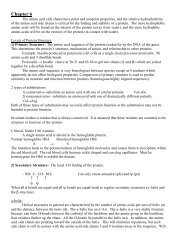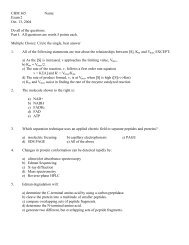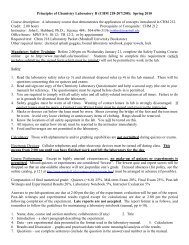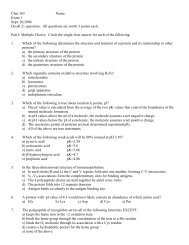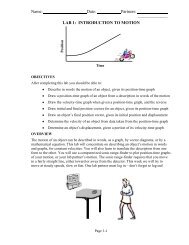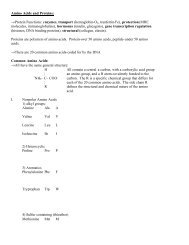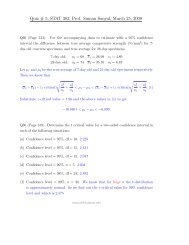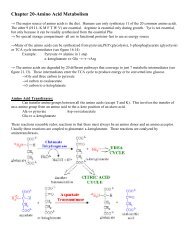THE DHAMMAPADA: THE WAY OF THE BUDDHA, VOL. 9-12 The ...
THE DHAMMAPADA: THE WAY OF THE BUDDHA, VOL. 9-12 The ...
THE DHAMMAPADA: THE WAY OF THE BUDDHA, VOL. 9-12 The ...
Create successful ePaper yourself
Turn your PDF publications into a flip-book with our unique Google optimized e-Paper software.
<strong>THE</strong> <strong>DHAMMAPADA</strong>: <strong>THE</strong> <strong>WAY</strong> <strong>OF</strong> <strong>THE</strong> <strong>BUDDHA</strong>, <strong>VOL</strong>. 9-<strong>12</strong> 203<br />
<strong>The</strong>se sutras today are very special. This whole series... this is the last series of Buddha’s sutras. Up to now he<br />
was talking to the disciples who were getting ready. Now this last part of his sutras is meant for the bodhisattvas,<br />
for those who have become ready, for those who have experienced something of the inner. It is not for the initiates,<br />
it is not for the adepts. Hence this last part is the most important part.<br />
Buddha says there are two kinds of enlightened people in the world; he is very scientific about his approach. His<br />
categories are very significant; nobody has done that before or since. He says the first category of the enlightened<br />
ones is called arhatas. <strong>The</strong> arhata is a mystic; he has known, he has realized, but he is utterly unconcerned about<br />
others. He has found the way. He has reached his home and he does not care about others who are seeking<br />
and searching, because his understanding is that if they seek and search authentically they will find the way<br />
themselves. And if they are not true seekers, nobody can make them true seekers; hence no help is needed. <strong>The</strong><br />
arhata does not help anyone. He has traveled alone and he knows everybody has to travel alone.<br />
When Buddha became enlightened himself, his first idea was to become an arhata. For seven days he remained<br />
absolutely silent, not saying a single word.<br />
<strong>The</strong> story is: Gods from heaven came. <strong>The</strong>y were very much worried because only once in a while does a<br />
person become awakened, and if he remains absolutely silent the world will miss his message. And his message<br />
is a medicine for those who are dying; his message is a nourishment for those who are starving for truth. His<br />
message can be a boat to the other shore. His message has to be delivered, he has to be persuaded. <strong>The</strong>y came,<br />
and they argued.<br />
But Buddha said, ”You must agree with me that nobody was able to help me of course, I knocked on many<br />
doors because it is something which is not transferable. Even if they had it they could not give it to me; I had<br />
to find it by my own effort. Hence I think that is the only way: people have to seek and search; it cannot be<br />
borrowed.”<br />
He was right and the gods had to agree. And he said, ”Even if I say it, only one out of ten thousand people will<br />
understand. <strong>The</strong> remaining ones will not understand; on the contrary, they will misunderstand. So why create<br />
so much misunderstanding in the world? <strong>The</strong> world is already in confusion why create more confusion? Out of<br />
compassion I am keeping quiet. And the one who will understand will find it himself anyway. <strong>The</strong> man who can<br />
understand what I say is so intelligent that really he needs no help. So what is the point? Why should I bother?”<br />
<strong>The</strong> gods were silenced. <strong>The</strong>y moved into the woods to ponder over the matter. ”How to convince the Buddha?<br />
He appears to be right, he is logical, but some way has to be found.” It is good that they were able to find some<br />
way, otherwise we would have missed <strong>The</strong> Dhammapada; these beautiful sutras would have been missed. <strong>The</strong><br />
world would have been far poorer. <strong>The</strong> whole credit goes to those anonymous gods who persuaded Buddha!<br />
<strong>The</strong>y pondered over the matter for hours; they found a way. <strong>The</strong>y came back and they said, ”We agree with<br />
you, but only on one point we cannot agree. And that point is that we understand that only one person will<br />
understand out of ten thousand, so you need not bother about that one person; he will find himself sooner or<br />
later. It is only a question of time, and time does not matter because existence is eternal. So what does it matter,<br />
how does it matter, whether one achieves today and somebody else achieves tomorrow or the day after tomorrow?<br />
All those who have become awakened are contemporaries; it does not make much difference at all.”<br />
That’s why I say I am a contemporary to Buddha, a contemporary to Jesus, a contemporary to Zarathustra,<br />
a contemporary to Lao Tzu. Once you know, you become contemporary to all the knowers. All small time gaps<br />
simply disappear, they are so tiny. Twenty-five hundred years make no difference at all.<br />
That’s why in the East we have not bothered much about time. Nobody knows when Krishna was born. We<br />
could have also created a calendar in the name of Krishna before Krishna, after Krishna we could have made<br />
a history. And Krishna certainly preceded Jesus by at least three thousand years, so his calendar would have<br />
been five thousand years old by now. But we have never bothered about it. Nobody knows when the founder of<br />
Jainism, Adinatha, was born or when he died. He must have preceded even Krishna by at least five thousand<br />
years. If we had a calendar then, his calendar would by now have been at least ten thousand years old. I am<br />
saying ”at least,” because Jainas say that he is far older. According to them he is almost ninety thousand years<br />
ancient; it is possible.<br />
But we have not created history, we have not written history, for the simple reason that the people who are<br />
worth writing about go beyond time; for them time becomes irrelevant. And the people who are not worth writing<br />
about, only they make much noise in the world of time. Genghis Khan, Tamerlane, Adolf Hitler, Joseph Stalin,<br />
Ayatollah Khomeiniac, these people make much noise in the world of time. A Buddha, a Krishna, a Jesus, a<br />
Zarathustra simply make no trace in time; they disappear without leaving a trace, as if they are not part of<br />
history, or they are part of a totally different kind of history which is nontemporal.



